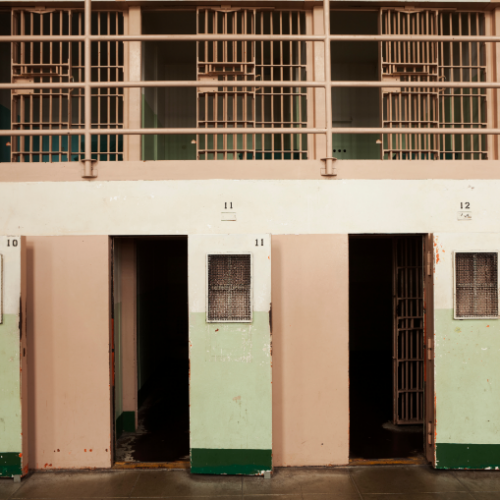Seeking New Perspective, Interview Series Gives Firsthand Look at Criminal Record Clearance Experiences
With awareness of the need for criminal justice reform on the rise across the country, hearing stories about people who have criminal records isn’t all that uncommon. But a new interview series is allowing listeners to actually hear how these records have impacted lives, as well as the discourse surrounding criminal record clearance.
For the Record is produced by the Clean Slate Clearinghouse, a project funded by the U.S. Departments of Labor and Justice that provides resources that help individuals with criminal records learn more about removing, or “clearing,” those records from easy public access. The series features conversations between Rashawn Davis—a policy analyst at The Council of State Governments (CSG) Justice Center—and people who are involved in the criminal record clearance field, including elected officials, lawyers, social workers, and people who have or have had a juvenile or criminal record (or individuals who are all four, or more).
Davis and his guests will highlight the underexplored experiences, perspectives, and policy advances that are shaping the field and impacting the futures of people who have juvenile or criminal records.
“By exploring the narratives around the people who work, advocate, and benefit from record clearance, we bring color to a subject that is too often seen in black and white,” Davis explained. “The show helps to bring voices into the dialogue that aren’t often heard. This hopefully helps to expand the discussion around record clearance and can act as a model for other areas of criminal justice, which plays into the Clean Slate Clearinghouse’s goal to be a nexus for criminal record clearance resources.”
The inaugural episode was released on March 6, 2018, and features an interview with criminal justice reform advocate Khalil Cumberbatch, an associate vice president with the Fortune Society and someone who has an intimate knowledge of the series’ subject: he spent almost seven years in prison, and four years after that with a criminal record until he received a gubenatorial pardon in 2014.
Opening the conversation about record clearance in this way “has the ability to tell a larger narrative, which in this case, is largely about humanizing someone,” Cumberbatch said, noting the power of framing the conversation around people, not convictions, when it comes to talking about individuals who have juvenile or criminal records.
“It doesn’t mean that it’s a win, and everyone can pack up and go home,” he said. “But it is a way to shift culture.”
Listen to the first episode here, and stay tuned for information on the next episode of For the Record.
A positive school experience, where a child feels secure, is essential for their well-being. However, for many children…
Read More The Path to Statewide Community Crisis Response in New Jersey: A Community Advocate’s Perspective
Read More
The Path to Statewide Community Crisis Response in New Jersey: A Community Advocate’s Perspective
Read More
 Supporting Children of Incarcerated Parents: Reimagining School and Community Collaboration
Supporting Children of Incarcerated Parents: Reimagining School and Community Collaboration
A positive school experience, where a child feels secure, is essential for…
Read More Bridging Communities and Correctional Systems: Q&A with CSG Justice Center Advisory Board Member Commissioner Nicholas Deml
Read More
Bridging Communities and Correctional Systems: Q&A with CSG Justice Center Advisory Board Member Commissioner Nicholas Deml
Read More
 Assigned to the Cloud Crew: The National Incarceration Association’s Hybrid Case Management for People with Behavioral Health Needs
Assigned to the Cloud Crew: The National Incarceration Association’s Hybrid Case Management for People with Behavioral Health Needs
When returning to their communities from criminal justice settings, people with behavioral…
Read More Meet the Medicaid and Corrections Policy Academy Mentor States
Meet the Medicaid and Corrections Policy Academy Mentor States
New Hampshire Department of Corrections Commissioner Helen Hanks presents at the Medicaid…
Read More










